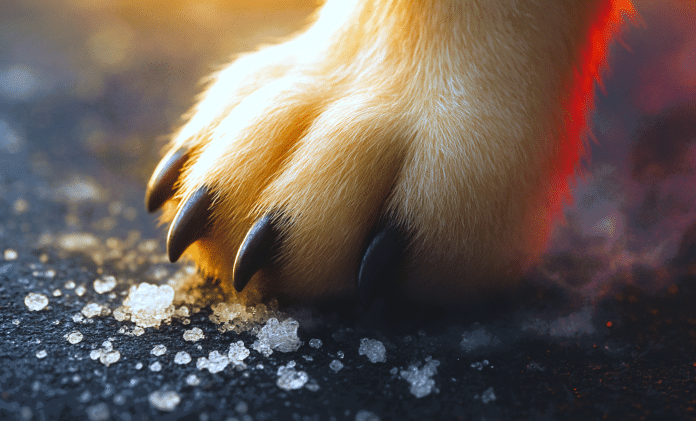Omaha, NE – As the first winter snow and freezing temperatures arrive across Nebraska, veterinarians are reminding pet owners to watch for more than just slippery sidewalks. The road salt and de-icing chemicals used to treat streets and bridges can burn paw pads, irritate skin, and cause toxic reactions if pets lick or ingest them.
Most de-icing products contain sodium chloride, calcium chloride, or magnesium chloride, which melt snow effectively but can quickly dry and crack paw pads. When dogs lick their feet after exposure, they may swallow toxic residue that can cause vomiting, diarrhea, excessive thirst, or lethargy. In severe cases, veterinarians warn, salt poisoning can lead to seizures or kidney damage.
Experts note that Nebraska’s early winter mix of frost, snow, and freezing rain often prompts heavy salt use, even before major storms arrive. Some ice melts also contain industrial byproducts or heavy metals, increasing toxicity risk when pets are repeatedly exposed.
To reduce harm, veterinarians recommend rinsing pets’ paws with warm water after every walk and drying them thoroughly. Applying a paw balm or wax before heading outdoors helps form a barrier against salt and ice, while trimming fur between toes prevents buildup. Booties can also provide protection for dogs that tolerate them. Homeowners are encouraged to use chloride-free, pet-safe ice melts around their property.
With temperatures dipping into the 20s and 30s across much of the state this weekend and light snow expected in eastern Nebraska, veterinarians urge owners to limit outdoor time during the coldest hours and watch for limping or licking—early signs of salt irritation.
As winter weather arrives in Nebraska, experts emphasize that the biggest seasonal threat to pets isn’t the snow—it’s the chemicals coating the ground to melt it.





